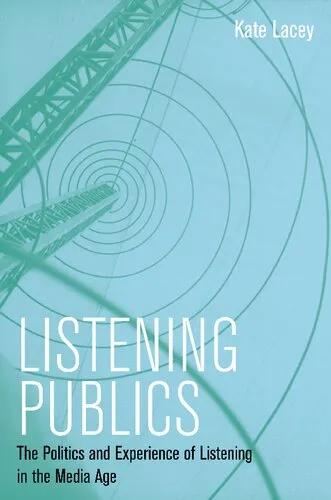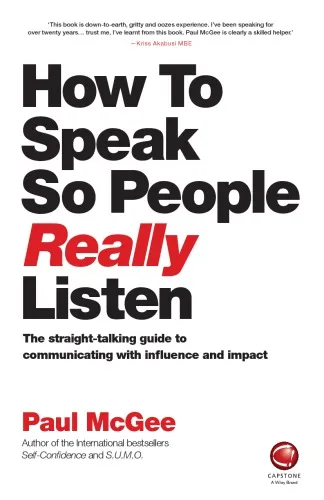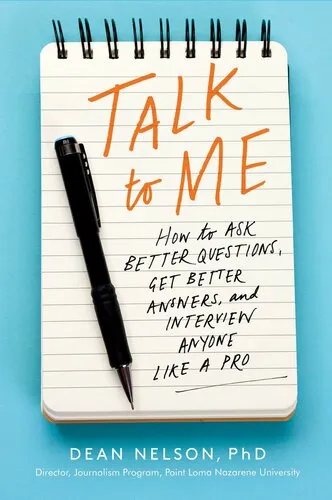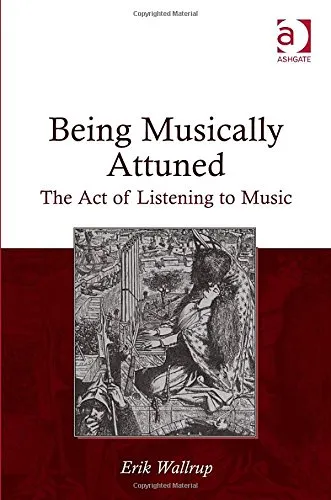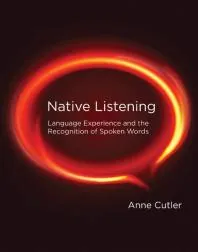Listening Publics: The Politics and Experience of Listening in the Media Age Kate Lacey
4.5
Reviews from our users

You Can Ask your questions from this book's AI after Login
Each download or ask from book AI costs 2 points. To earn more free points, please visit the Points Guide Page and complete some valuable actions.Related Refrences:
Introduction to 'Listening Publics: The Politics and Experience of Listening in the Media Age'
In today's media-saturated world, communication is often seen as inherently synonymous with speaking, broadcasting, or forwarding information. However, an equally critical yet undertheorized component of communication is listening. My book, Listening Publics: The Politics and Experience of Listening in the Media Age, seeks to put listening back at the center of the conversation about media, politics, and the public sphere. Written at the intersection of media studies, political theory, and cultural criticism, the book shifts our focus to the act of listening—not merely as a passive, receptive process but as an active, political one that plays a profound role in shaping democracy, public discourse, and social relationships.
The book delves into the ways in which listening has been marginalized in media scholarship and popular discourse. By interrogating its complexities, I argue that listening is not just the "other side" of speaking but a distinct form of participation and agency within public life. From radio to digital media, this book explores how listening has been shaped, disciplined, and politicized in diverse historical and cultural contexts. Ultimately, the study positions listening as a critical yet overlooked dimension of civic engagement and power in the media age.
Summary of the Book
Listening Publics revolves around the core argument that the act and politics of listening deserve as much scholarly and societal attention as the acts of speaking and broadcasting. The book unpacks what it means to be a “listening public” in various media epochs, ranging from the rise of radio broadcasting to the digital age. With each chapter, I confront key questions: How do media technologies influence the ways we listen? How is listening connected to power, participation, and citizenship? And how can listening be reclaimed as a form of democratic engagement?
The book draws on a rich array of examples—radio programming, political speeches, podcasts, and social media—to elucidate how different historical and technological contexts have enabled or hindered listening practices. Special attention is given to the dynamics of inclusion and exclusion, exploring who gets to speak and who is compelled to listen under various circumstances. Furthermore, the book challenges the traditional binary of “active speaker” versus “passive listener,” advocating for a view of listening as an active, critical, and creative practice.
By integrating theoretical frameworks from media studies and political philosophy with empirical examples from everyday life, Listening Publics argues that listening is more than a democratic ideal. It is a practice that must be nurtured and protected. If we are to foster healthier public spheres, we must address the inequalities and blind spots surrounding listening in our media landscapes.
Key Takeaways
- Listening is an active and political process, not merely a passive act.
- The media shape not only how we speak but how we listen, influencing the public sphere and democratic engagement.
- The concept of "listening publics" challenges traditional notions of audience passivity in mass communication.
- Understanding the politics of listening is essential for addressing inequalities in who gets to be heard and who is ignored.
- Listening can be a form of civic participation and resistance in times of political or media crises.
Famous Quotes from the Book
"Listening is not a neutral act. It is, inherently, a politics of attention and recognition."
"In a world dominated by speaking, what does it mean to give space to listening as an act of agency and engagement?"
"The capacity to listen—or be listened to—shapes our roles as citizens, as audiences, and as humans."
Why This Book Matters
Listening Publics addresses a critical gap in media and communication scholarship by highlighting the neglected yet crucial act of listening. In an era where divisive rhetoric, echo chambers, and polarized public discourse dominate, understanding the political and social dimensions of listening is more important than ever. By reimagining listening as a dynamic and participatory process, the book equips readers with the tools to engage more ethically and responsively in both media and civic life.
Furthermore, the book resonates beyond academia, offering insights for media practitioners, activists, politicians, and ordinary citizens seeking to navigate the complexities of communication in our media age. It reminds us that democracy is not just about speaking louder; it is also about listening better—and ensuring others can be heard.
Free Direct Download
You Can Download this book after Login
Accessing books through legal platforms and public libraries not only supports the rights of authors and publishers but also contributes to the sustainability of reading culture. Before downloading, please take a moment to consider these options.
Find this book on other platforms:
WorldCat helps you find books in libraries worldwide.
See ratings, reviews, and discussions on Goodreads.
Find and buy rare or used books on AbeBooks.
1411
بازدید4.5
امتیاز0
نظر98%
رضایتReviews:
4.5
Based on 0 users review
Questions & Answers
Ask questions about this book or help others by answering
No questions yet. Be the first to ask!
